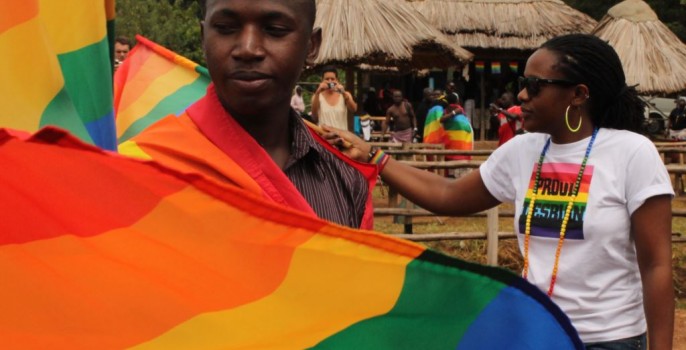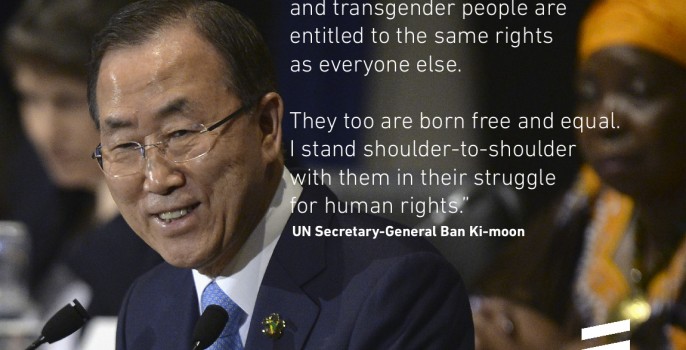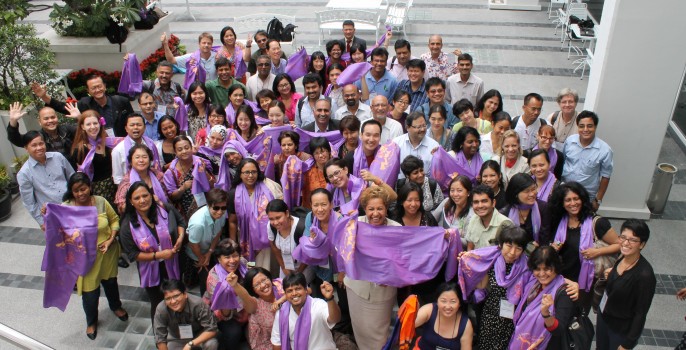Between 200 and 300 lesbian, gay, bisexual and transgender people attended a pride parade on Saturday (August 3), in the highlight of Kampala’s week-long Pride Festival. The event proceeded peacefully in only the second time that a pride parade has been held in the country.
Since 2009, when the Anti-Homosexuality Bill was first introduced in the national parliament, Uganda has repeatedly made international news headlines regarding institutionalised homophobia, the extent of violence against LGBT communities, and the passage of the so-called ‘Kill the Gays’ bill. The bill currently remains under review, after briefly re-surfacing in early 2013.
One recent study, by Pew Research, found that 96% of the population think that homosexuality should not be accepted in Ugandan society.
Last year the country’s first ever pride parade was broken up by police, and various arrests were made. “That success gave us confidence that we can do it… We are getting more confident as time goes by,” explained activist Kelly Mukwano.
This year the police gave permission for the parade to go ahead beforehand, and the authorities did not intervene. The parade was held 30km from the capital, in the coastal city of Entebbe. It was held in a beachside botanical garden and the parade route was shortened this year. Six police officers were present to avoid potential confrontations.
Reports the Voice of America: ‘According to Sandra Ntebi, who handles security for the gay and lesbian community, the number of activists has also been growing. “We have more energy than three or five years back when the bill had just been tabled and everyone was running,” Ntebi said. “We were not feeling that we really deserved to stay in our own country. But most of us have decided to come back on the ground and we fight for our rights from home.”
There is no question that being homosexual in Uganda is still difficult. Police regularly break up events held by the gay and lesbian community, and homosexuals are often disowned by their families and shunned by friends. Violence and intimidation occur on a regular basis.
But Mukwano insists that the situation in Uganda has been exaggerated in the international media, and that there are plenty of countries that are worse. “People are dying in Ethiopia,” Mukwano said. “People are dying elsewhere in the world. In Jamaica, people are being beaten all the time because they are gay. So I think that was over-exaggerating that Uganda is the worst place to be gay.”’

Participants in Saturday’s second ever Ugandan Pride Parade. Source: Pink News.
Uganda’s 5-day pride festival, co-ordinated by the Uganda Pride Committee, was held from July 31 – August 4, 2013.
Organisers advised in a press release published in the lead-up to events (July 25): ‘We believe this year will be memorable. We have moved from the worries and pressure that comes with organizing an event for the first time and with the help of community members’ suggestions, we intend to give you a safe and great pride experience. We cannot forget about the hardships LGBTI persons endure on a daily basis across this country, and the world…It will be a celebration of acceptance, love and community togetherness.’
Highlights from this weeks events included showings of the movies God Loves Uganda and Call Me Kuchu, an official opening red carpet cocktail and dinner party, different theme parties, and a cultural gala. Most activities were held in the ‘pride grounds’ where different organisations exhibited and promoted their work, throughout the week. Bishop Christopher Senyonjo was the parade’s grand marshal.
This year’s pride events were held under the theme ‘Still here, Still going strong’.
For more information please see:
Voice of America: ‘Second Annual Gay Pride Parade Held in Uganda‘
76 Crimes: ‘In a small step forward, Ugandan pride parade is peaceful‘
Committee to Protect Journalists (CPJ) Blog: ‘Filmmaker’s arrest signals limits to Uganda coverage’
Pride Uganda Blog: ‘Pride Uganda 2013: Still here, Still going strong‘
Main Photo: Voice of America.



